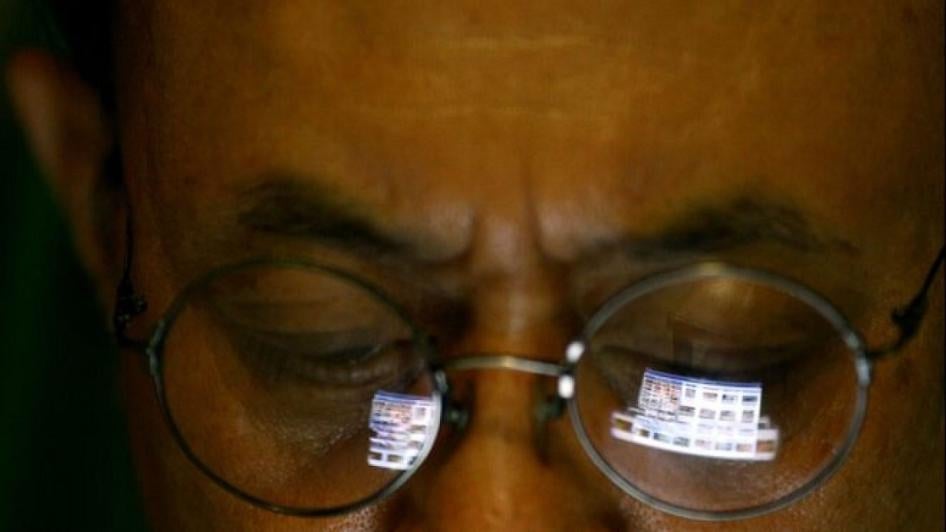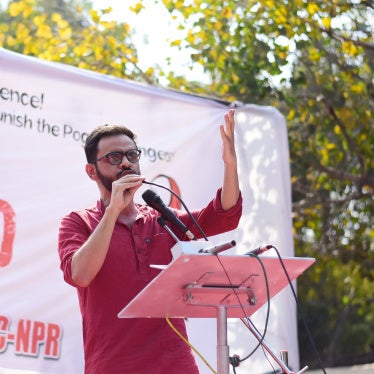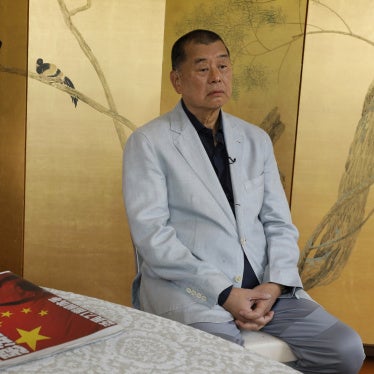(New York) – Facebook has bowed to pressure by the government of Vietnam and agreed to restrict posts by dissidents, setting a bad precedent for both human rights and its global policies, Human Rights Watch said today. The decision increases the likelihood of other content restrictions in the future.
According to a detailed account by Reuters citing sources within Facebook, in recent months the government of Vietnam disrupted access to the company’s servers to slow access to its services as a means of pressuring the company to remove or restrict content criticizing the government. Human Rights Watch called on Facebook to reverse its decision.
“Facebook has set a terrible precedent by caving to the government of Vietnam’s extortion,” said John Sifton, Asia advocacy director. “Now other countries know how to get what they want from the company, to make them complicit in violating the right to free speech. The government of Vietnam shouldn’t have throttled the platform’s traffic in the first place, but Facebook shouldn’t have agreed to its demands.”
The government of Vietnam regularly demands that social media companies take down posts or accounts for violating overbroad and vague provisions in the country’s penal code criminalizing speech critical of the government or its leaders, efforts to organize protests, or other forms of dissent. Its cybersecurity law, which went into effect in January 2019, requires service providers and internet companies to take down content that offends the authorities within 24 hours of receiving their request. In the past, Facebook has reportedly resisted requests to block access to user posts, although it has removed some posts at various times.
According to the Reuters report, through February and March 2020 the government of Vietnam compelled internet service providers in Vietnam, most of them owned or tightly controlled by the government, to take its local cache servers offline. The cache servers allow Facebook to temporarily store copies of some of the platform’s content locally to enable users to access it more quickly. Taking these servers offline meant that access to Facebook’s platform and its services, including WhatsApp and Instagram, slowed considerably. Internet usage in Vietnam in general also began to slow as traffic from Facebook’s platforms and services was overloading international cables in order to access servers outside of the country.
When Facebook finally made a commitment to Vietnam to restrict more content the government wants taken down, the local servers were put back online.
The slowdown of its services came at a time when Facebook and internet users worldwide had increased their use of online services to communicate with one another and obtain or share information during the COVID-19 crisis. Vietnam has a long record of criminalizing dissent and prosecuting human rights activists for criticizing the government.
In a statement, a Facebook spokesperson said that the Vietnamese government “has instructed us to restrict access to content which it has deemed to be illegal in Vietnam. We believe freedom of expression is a fundamental human right, and work hard to protect and defend this important civil liberty around the world. However, we have taken this action to ensure our services remain available and usable for millions of people in Vietnam, who rely on them every day.”
The UN’s Guiding Principles on Business and Human Rights require businesses like Facebook to “respect human rights,” including by avoiding infringements and addressing adverse impacts in which they are involved. As a member of the Global Network Initiative, Facebook has pledged that it will protect the human rights of users when they are confronted with government demands inconsistent with international human rights standards.
Facebook should publicly explain how it came to its decision, Human Rights Watch said. It should share the findings of any human rights impact assessment it conducted on the situation, describe whether and how it intends to remediate the victims of its censorship actions, and discuss how it plans to avoid becoming a censorship proxy for other authoritarian governments in the future.
“It’s hard to see how Facebook can live up to its human rights obligations when it’s helping Vietnam censor free speech,” Sifton said.
The pressure on Facebook coincides with a new decree by the government providing for monetary fines for people and internet companies for posting or publishing a sweeping range of items with “forbidden contents” or materials that promote “reactionary ideas” or “have not been allowed for circulation, or have been prohibited for circulation or have been confiscated” or “distort historical truth, dismiss revolutionary achievement, insult the nation or national famous people and heroes.” Stated in such vague and overbroad terms, the provisions allow the government to penalize people and platforms for any statement at all, Human Rights Watch said.
The United States and other countries should have better utilized their diplomatic leverage to support Facebook in their stance against pressure from the government of Vietnam, Human Rights Watch said. Other businesses and business groups should have stood more publicly with the company to prevent the government’s strong-arm tactics.
“This isn’t the end of the story: the government is going to make more demands in the future and not just of Facebook,” Sifton said. “The only way to stop Vietnam from forcing companies to censor free speech is to ensure that they pay a price for doing so.”









